From India’s slums to government schools, DEVI Sansthan’s ALfA model is redefining foundational learning through speed, dignity and inclusion. The following case study captures how this vision translates into impact on the ground.
“Give me the pen now, I’m not an angootha chhaap anymore,” said Mazeedun Nisha with pride at a parent–teacher meeting. For years, she had marked the register with her thumbprint. But through DEVI Sansthan’s literacy programme, she could now sign her name; a small act symbolising a profound change.
Her story mirrors that of hundreds of thousands of learners, children and adults, who have gained life-changing reading, writing and numeracy skills through DEVI Sansthan (Dignity Education Vi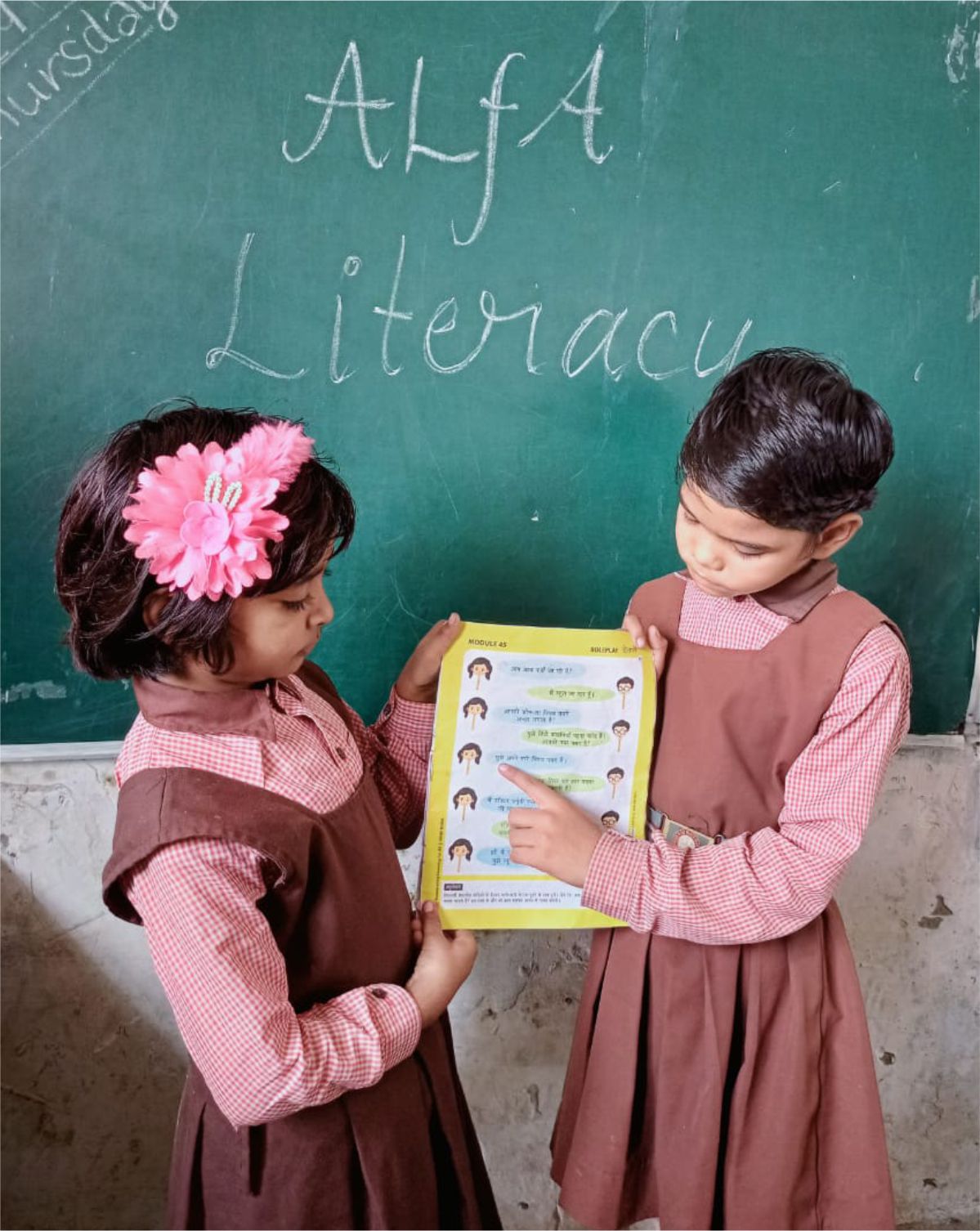 sion International), an organisation transforming the way foundational literacy is achieved at scale.
sion International), an organisation transforming the way foundational literacy is achieved at scale.
A Vision to Make India Literate
DEVI Sansthan was founded in 1992 by Dr Sunita Gandhi, then a World Bank economist. In the early 2000s, she left her career with a simple yet profound dream: to make India literate. Despite years of schooling, many children reached Grades 5 or 8 without basic reading skills, while adult literacy drives remained slow and ineffective. Dr Gandhi asked a fundamental question — could there be a quicker, dignified way to learn?
Her research began yielding results in 2014 when literacy classes took off in Lucknow’s slums and nearby villages. DEVI’s approach reversed the usual sequence: rather than rote-memorising “a se anaar,” learners started with a picture of a pomegranate and discovered its first sound. The outcomes were remarkable — the first batch of children and adults learned to read in just 15 instructional hours on average.
As DEVI expanded through partnerships and student volunteers, the work took a new direction in 2022. In the aftermath of the pandemic, when learning losses were extensive, the Ministry of Education invited DEVI to support low-performing districts. The results prompted rapid scale-up. Today, DEVI works in more than 8,000 government schools, with MoUs for roll-out in over 35,000.
DEVI’s core aim is that every learner attains foundational literacy and numeracy through rapid, evidence-based pedagogy. The mission directly aligns with SDG 4, combining research, teacher support and practical tools that improve outcomes in weeks rather than years. Its flagship pedagogy—ALfA (Accelerating Learning for All)—uses peer learning and hands-on visual modules to make learning joyful, fast and inclusive, anchored in the broader goal of ensuring “learning with dignity” so that socio-economic circumstances never curb human potential.
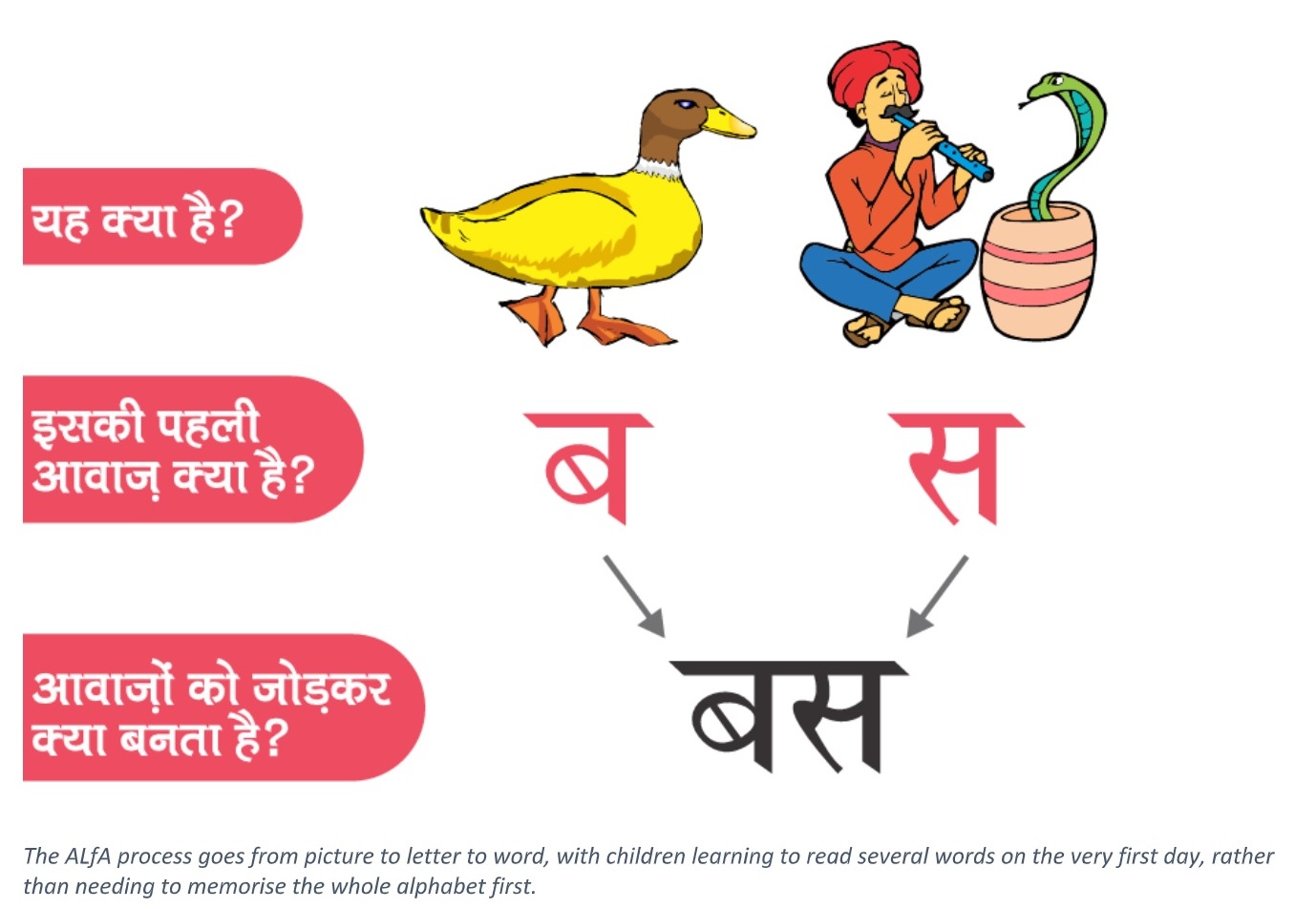 The Initiative: A New Way to Learn — Faster and Together
The Initiative: A New Way to Learn — Faster and Together
ALfA is a child-led, activity-based, paired-learning model that enables learners to progress from illiteracy to decoding, writing and basic arithmetic in as little as 45 instructional days. It flips the traditional approach: children decode words through pictures and sounds before transitioning to letters, while numeracy builds kinesthetically from concrete experiences to abstract concepts. Instead of lecturing, teachers “galvanise” learning as students teach and support one another.
Since 2022, ALfA has been implemented across thousands of government schools in Uttar Pradesh, Himachal Pradesh, Jammu, Telangana, Jharkhand, and Maharashtra, with pilots also in Peru, the Maldives and Ghana.
By March 2025, more than 6 lakh students in over 8,000 government schools had benefited from ALfA. The pedagogy directly advances India’s NIPUN Bharat FLN goals, and ALfA schools in Uttar Pradesh were twice as likely to meet 80% FLN proficiency benchmarks. Internationally, the approach reinforces global commitments to SDG 4 and quality education for all.
Need and Rationale
India’s post-pandemic learning crisis exposed deeply rooted challenges. More than half of Grade 5 students cannot read a Grade 2-level text or solve a two-digit subtraction problem. ALfA was designed as a structured response to this crisis by shifting from one-way teacher delivery to peer-driven dialogue. Learners practise immediately using concise visual modules and hands-on tools, reading meaningful words from day one and mastering numeracy through real-world interactions. The model preserves dignity by enabling children to uplift one another and achieve far more, far faster, than conventional methods allow.
Implementation Strategy: Collaboration, Innovation and Scale
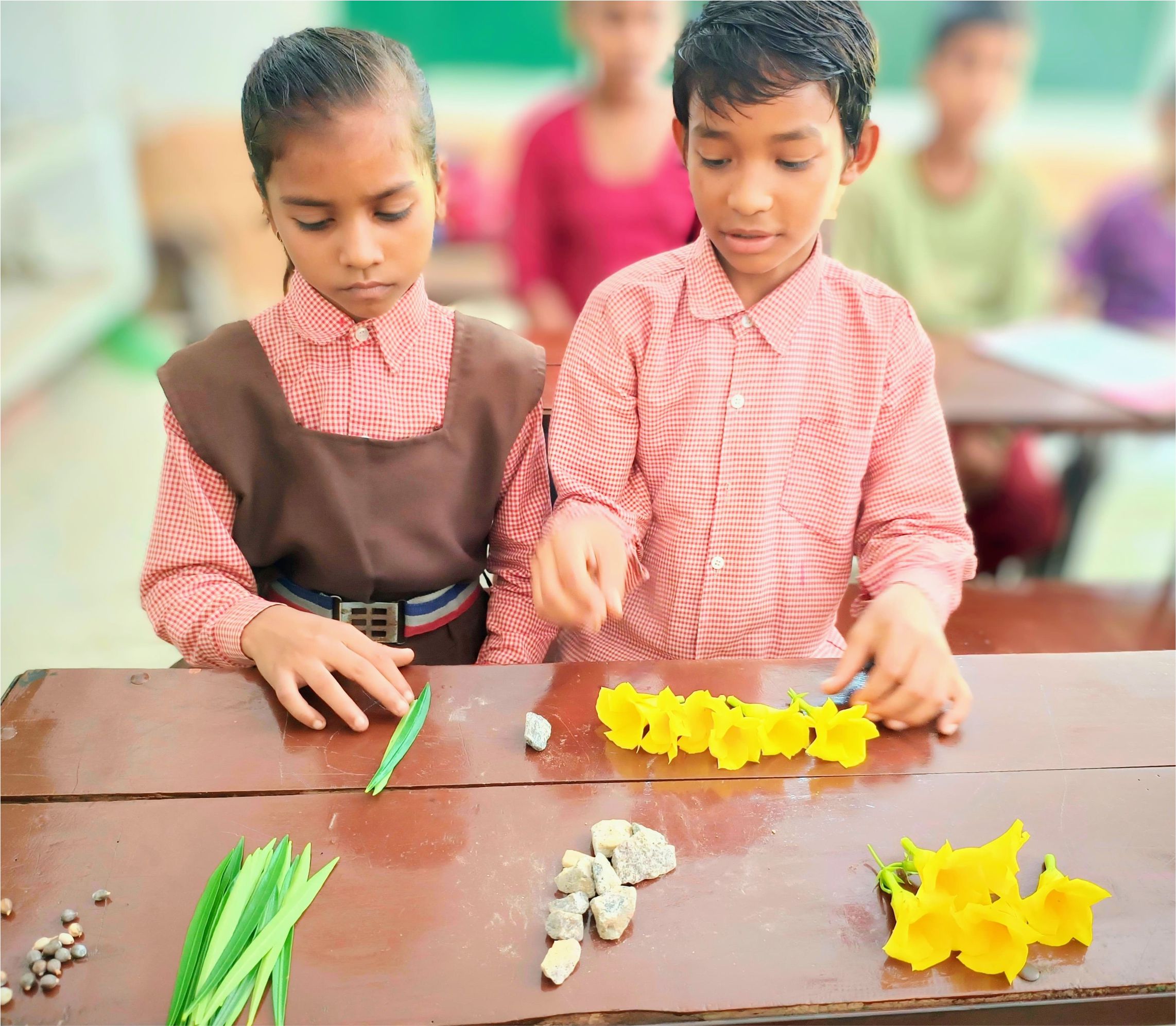 Pedagogical Approach: ALfA brings students together in randomly assigned pairs where they learn from one another using one-page visual modules that progress from sound and image to word and letter. Teachers demonstrate and encourage while students lead the pace, building confidence through rapid visible success. Paired learning nurtures 21st century skills—collaboration, communication, creativity, critical thinking, character and citizenship—developed alongside foundational skills.
Pedagogical Approach: ALfA brings students together in randomly assigned pairs where they learn from one another using one-page visual modules that progress from sound and image to word and letter. Teachers demonstrate and encourage while students lead the pace, building confidence through rapid visible success. Paired learning nurtures 21st century skills—collaboration, communication, creativity, critical thinking, character and citizenship—developed alongside foundational skills.
Training and Tools: Teachers receive brief “triggers” embedded in the student material, enabling self-training with minimal added workload. Children learn through everyday low-cost resources such as leaves, pebbles and string, while a digital layer strengthens assessment and scale. The Pragati App offers instant diagnostics across system levels; the Literacy Now App supports verified pre- and post-testing; and the ALfA Way App helps accelerate roll-out.
Partnerships: State education departments, CSR foundations and NGOs work with DEVI to train teachers and integrate materials into public systems, creating a sustainable, cost-effective model. International collaborations range from UNICEF-supported work in the Maldives to pilots in Peru, Ghana and the USA. DEVI works as a catalyst: rather than implementing ALfA directly, it trains and empowers governments and other NGOs to use it in their own contexts. This makes the model high impact and low cost.
Community Engagement: The long-running “Each One Teach One” initiative has mobilised nearly half a million student volunteers to teach their peers, out-of-school youth and adults. Women-led literacy drives, such as in Kurauni village near Lucknow, show how community-owned leadership can lift entire neighbourhoods to first-time literacy in months.
Outcomes and Impact
By 2025, ALfA has reached more than 6 lakh students across 8,000+ government schools and trained over 30,000 teachers across nine Indian states, alongside international pilots. Children typically achieve functional FLN within 45–90 instructional days at an approximate cost of Rs 350 (US$4) per learner—placing ALfA among the most cost-efficient FLN interventions globally. Effect sizes across multi-district implementations range from 0.23 to 0.89 over roughly 40–50 days, surpassing international benchmarks.
Independent evaluations reinforce these gains. NIPUN assessments in Uttar Pradesh found ALfA schools twice as likely to reach 80% proficiency. Case chapters by the Harvard Graduate School of Education (2023) document strong learning improvements and policy adoption. A recent social impact audit highlighted academic progress as well as enhanced socio-emotional wellbeing.
District-level evidence shows uplift at scale: in Shamli (UP), 200+ schools serving over 43,000 students saw learning 50% faster than control groups; in Unnao, nearly half the schools reached FLN benchmarks—almost triple the district average. Similar success has been observed in H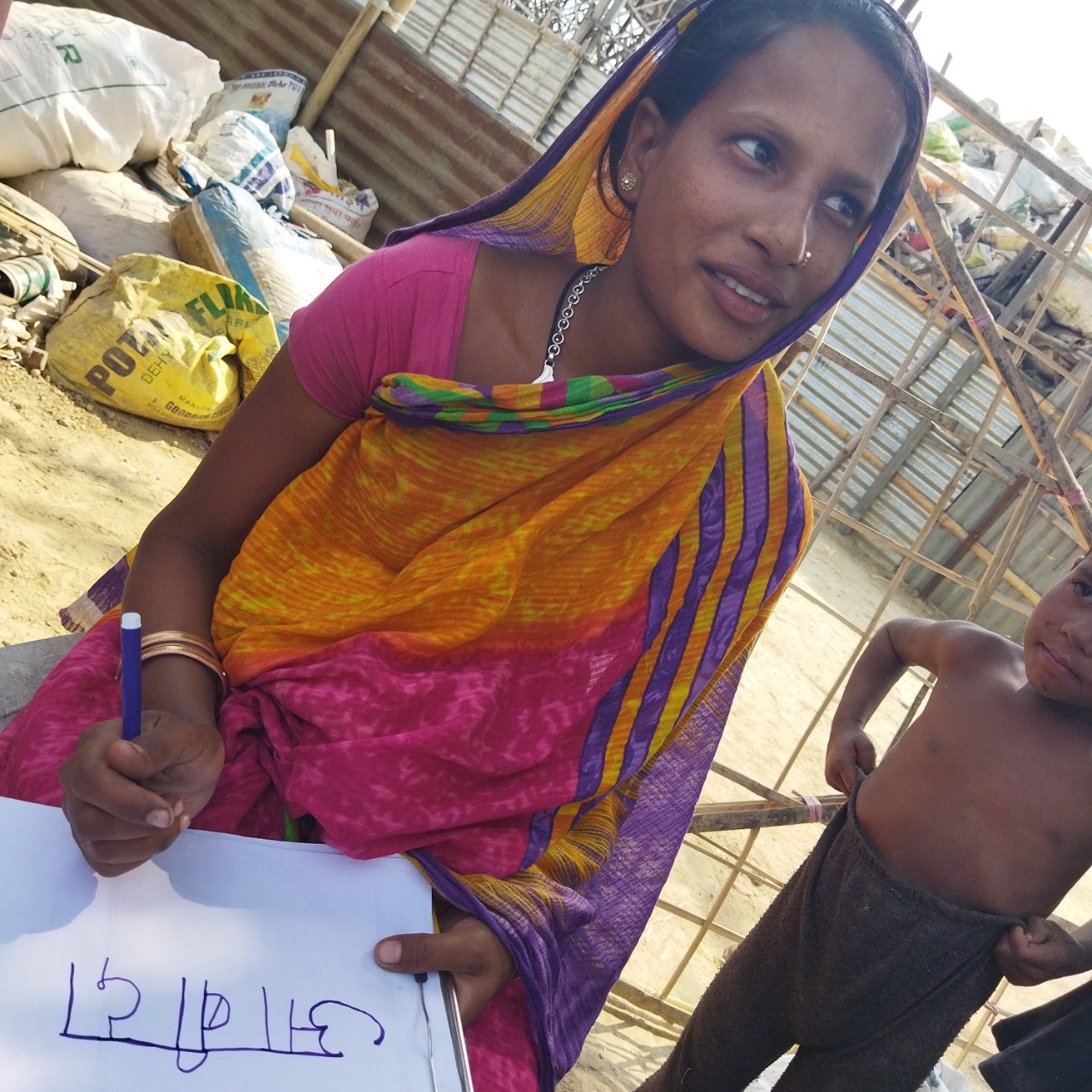 imachal Pradesh’s Solan district and across pilots in Peru, the Maldives and Ghana.
imachal Pradesh’s Solan district and across pilots in Peru, the Maldives and Ghana.
Future Plans and Sustainability
To sustain impact at scale, DEVI is embedding ALfA into state curricula, teacher-training systems and digital infrastructure through government MoUs and large-district rollouts. Digital tools, including Pragati dashboards and Literacy Now micro-lessons, will support standardised measurement and reduce classroom burden while enabling MOOT (Massive Open Online Trainings).
Internationally, the Explore → Expand → Embed model supports low-risk piloting followed by scalable integration, underpinned by CSR and institutional partnerships. At roughly US$4 per child with high effect sizes, ALfA offers exceptional value to systems striving to meet NIPUN Bharat and SDG 4 targets.
Literacy as Dignity, Learning for All
DEVI Sansthan champions a transformative belief: literacy is dignity. By placing learners at the centre, trusting teachers as facilitators, and mobilising communities, ALfA demonstrates that foundational skills can be achieved rapidly, joyfully and at population scale. As governments continue integrating ALfA into mainstream systems—supported by strong measurement, digital innovation and community leadership—the pathway toward universal foundational learning becomes not only possible but within reach, in India and beyond.
This case study is featured as part of TheCSRUniverse’s Education, Skilling & Employability Conference (ESEC’25) series, highlighting impactful models driving India’s learning and skilling ecosystem. To know more or join the conference, visit https://thecsruniverse.com/articles/thecsruniverse-esec-25-to-accelerate-india-s-human-capital-transformation-through-education-skilling-employability




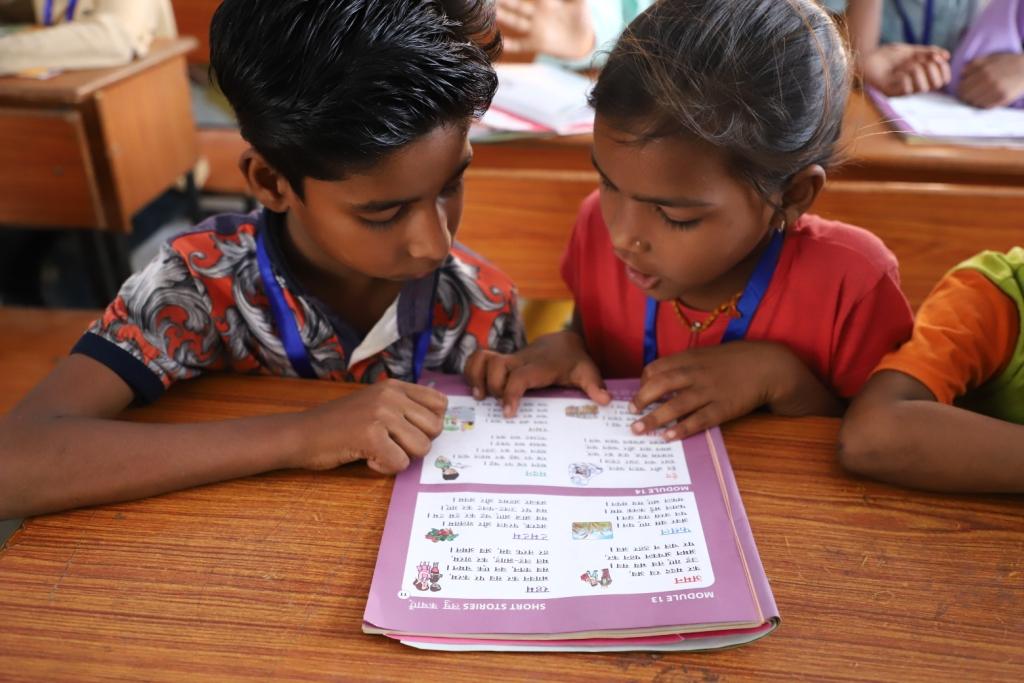
 sion International), an organisation transforming the way foundational literacy is achieved at scale.
sion International), an organisation transforming the way foundational literacy is achieved at scale. The Initiative: A New Way to Learn — Faster and Together
The Initiative: A New Way to Learn — Faster and Together Pedagogical Approach: ALfA brings students together in randomly assigned pairs where they learn from one another using one-page visual modules that progress from sound and image to word and letter. Teachers demonstrate and encourage while students lead the pace, building confidence through rapid visible success. Paired learning nurtures 21st century skills—collaboration, communication, creativity, critical thinking, character and citizenship—developed alongside foundational skills.
Pedagogical Approach: ALfA brings students together in randomly assigned pairs where they learn from one another using one-page visual modules that progress from sound and image to word and letter. Teachers demonstrate and encourage while students lead the pace, building confidence through rapid visible success. Paired learning nurtures 21st century skills—collaboration, communication, creativity, critical thinking, character and citizenship—developed alongside foundational skills. imachal Pradesh’s Solan district and across pilots in Peru, the Maldives and Ghana.
imachal Pradesh’s Solan district and across pilots in Peru, the Maldives and Ghana.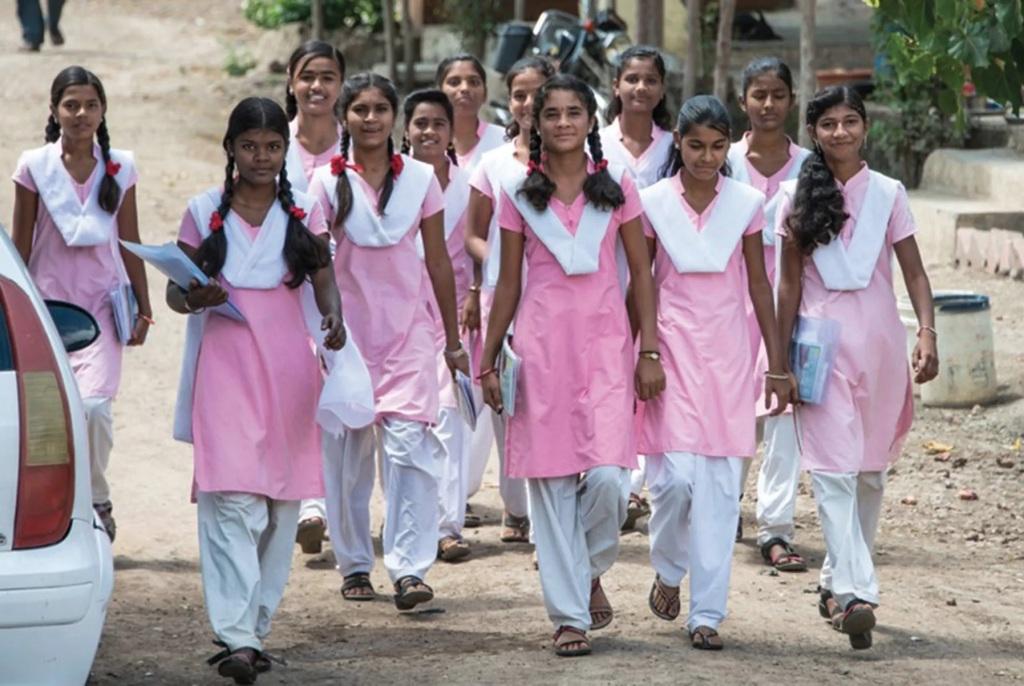


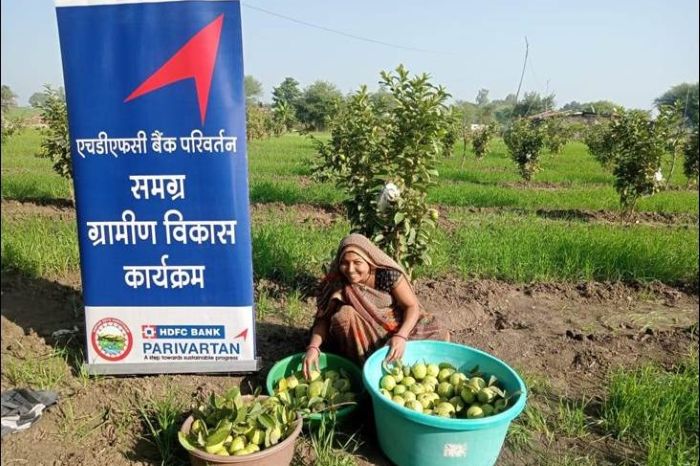
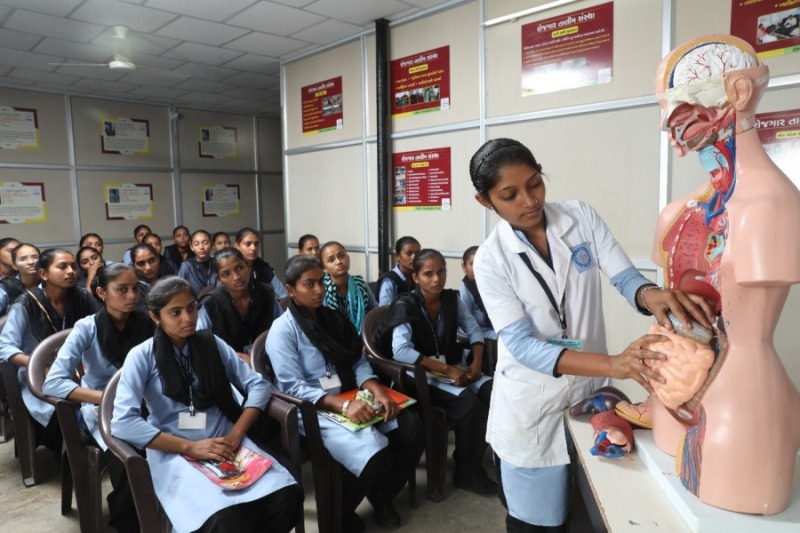








.jpg)



